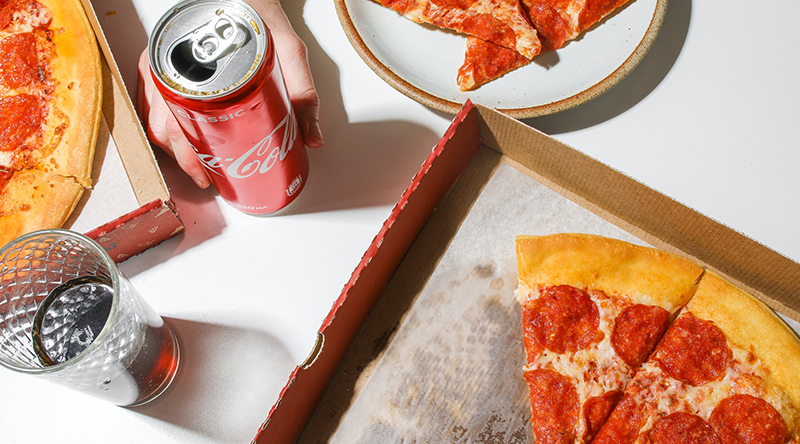Everyone is wanting to lose weight and will try different methods to see their weight loss. There are several different weight loss methods out there today. Therefore, we are going to look at the 3 of the top ones. Three of the biggest weight loss methods that are poor include diuretics, laxatives, and Ipecac syrup.
What do diuretics do? Diuretics also known as water pills make you go to the bathroom since they increase your urine production. In addition by removing excess water and salt. If you check your weight on a scale you might see a decrease in pounds. However this is just water weight that you have lost and not fat. Water weight can change daily. Over the counter water pills can actually dehydrate you since they are not monitored by a doctor with the specific dosage and usage. Dehydration may lead to problems with the function of your kidney and liver. (1)
The second method for poor weight loss is using a laxative. Laxatives are know for helping your bowel movements, not losing weight or burning fat. Overtime those who use laxatives may find they have issues with their bowel movements due to using them for too long. Bowels can become damaged and some common side effects can include but not limited to dehydration, constipation, electrolyte imbalance, bloody diarrhea, severe abdominal pain, nausea, and vomiting.
Lastly Ipecac syrup has been used in the past to help induce vomiting for accidental poisons. Many individuals have used Ipecac syrup to help achieve weight loss by throwing up their food also known as bulimia nervosa. This can lead to heart and muscle damage including irregular heart beat, breathing problems, seizures, and more. (2)
Poor Weight Loss Methods
There are many days we think to ourselves how did I become this overweight. What did I do to cause this, was it the double cheeseburger and fries meal? Our overweight problem is normally due to bad habits overtime not just a few bad days or a bad meal. Check out 7 Habits Being Overweight.

Lack of exercise each week
Look into doing 2-3 cardio workouts a week for 20-45 minutes each. Also don’t forget to add in the resistance training which helps your body burn fat while building lean muscle tissue. Resistance or strength training should be added in 2-3 times per week for 30-45 minutes. (3)
Eating out too often Poor
In today’s society we are extremely busy with work, kids, school, and more that when it comes to a meal we just run through fast food, go to a restaurant, or order from delivery places so we don’t have to spend time cooking. Most places we order from are 2-3 portions of a normal size meal. Meals loaded with sodium and calories. If you find that with your time you can only eat out then only eat half of the portion and take the other home. You can also find several recipes to use with your slow cooker online or with your pressure cooker so that your meal is healthier.
Featured Ephedra
Going back for seconds and thirds
When filling our plate with food for a meal think of putting less on the plate or using a salad plate instead. This allows us not to overeat and go back for seconds or thirds which will make us feel too full. If we are still hungry wait about 20 minutes so that your brain can process that you just ate. Then if you feel you are still hungry go ahead and have a little bit more but don’t overdo it.
Everyday fitness for Weight Loss
Look at changing a some things in your daily routine to help you burn a few more calories. When you are doing work at your desk, take a few breaks to walk outside and get some air. You can buy a stability ball and use as your chair at work to help your posture and burn more calories instead of relaxing in your chair. If you work at a building with a few floors, take the stairs instead of the elevator.
Desserts and sweets
Many that go on a diet to lose weight will ultimately cut out all sweets thinking this will help with the pounds disappearing. In fact, you can still have your favorite chocolate chip cookie or piece of cake however you need to have a smaller portion of it.
Not hungry but still eating
How many times do we sit down to watch our favorite show or movie and grab something to eat. If we have already had a meal we probably do not need that snack. Most will grab a bag of chips. Therefore don’t realize by the end of the show it is completely finished. Many people will eat due to stresses and other reasons not because they are hungry. We need to look at what the reason is or trigger that makes us eat and when we do look for a healthier reward that we can start implementing.
Meal skipping
Skipping meals whether it is breakfast, lunch, or dinner can be harmful to our weightloss goals. At the University of Massachusetts Medical School, researchers found that obesity can be linked to meals being skipped. The study found that those who eat smaller and frequent meals throughout the day were less likely to be overweight. Obese people end up eating large meals maybe only 1 or 2 a day. May cause a spike in insulin resulting in your blood sugar being stored as fat.
Those who are overweight at the beginning of a weight loss program may find it difficult to break some of these habits that are bad and not helping them be successful. If we take our weight loss journey one day at a time and eat better with exercising healthy we might see a more rewarding experience.
Pitfalls and Misinformation
Weight loss is a goal that many individuals strive to achieve, but the journey can be filled with pitfalls and misinformation. In our quest for a healthier and fitter body, it is crucial to distinguish between effective weight loss methods and poor ones. By understanding the dangers associated with poor weight loss methods, we can make informed decisions and avoid potential harm. In this article, we will delve into some of the most common poor weight loss methods to avoid, shedding light on their inefficacy and potential risks.
Understanding poor weight loss methods and their potential dangers
Before we dive into specific poor weight loss methods, let’s first examine what makes them detrimental to our overall health and well-being. Poor weight loss methods often promise quick results and shortcuts, enticing individuals who are desperate to shed pounds. However, these methods usually neglect the importance of sustainable and healthy weight loss practices. They can lead to various health complications, including nutrient deficiencies, muscle loss, and a compromised metabolism. It is crucial to recognize the red flags associated with poor weight loss methods to protect our long-term health.
Crash diets: Why they are ineffective and harmful
Crash diets have gained popularity due to their promise of rapid weight loss. However, these diets are neither effective nor sustainable. Crash diets typically involve severely restricting calorie intake, often to a dangerously low level. While they may result in temporary weight loss, the majority of it is water weight and muscle mass, rather than fat. Additionally, crash diets deprive the body of essential nutrients, leading to fatigue, mood swings, and a weakened immune system. Once the diet is abandoned, individuals often experience weight regain, and the cycle of yo-yo dieting begins. It is crucial to avoid crash diets and instead focus on adopting a balanced and nutritious eating plan for long-term weight loss success. (4)
Excessive exercise without proper guidance: The risks and limitations
Exercise is undoubtedly an integral part of any weight loss journey, but it is important to strike a balance. Engaging in excessive exercise without proper guidance can be counterproductive and even harmful. Overtraining can lead to injuries, burnout, and a heightened risk of developing stress-related health conditions. It is important to consult with a fitness professional to design an exercise program that is tailored to your specific needs and abilities. Remember, quality is more important than quantity when it comes to exercise. Incorporate a mix of cardiovascular activities, strength training, and flexibility exercises to achieve optimal results while minimizing the risk of injury. (6)
Skipping meals and severe calorie restriction: The negative impact on metabolism
In an attempt to lose weight, many individuals resort to skipping meals or severely restricting their calorie intake. While it may seem logical that consuming fewer calories will lead to weight loss, the truth is far more complex. Our bodies are incredibly adaptive and respond to prolonged calorie restriction by slowing down our metabolism. This means that the rate at which we burn calories decreases, making it increasingly difficult to lose weight. Additionally, skipping meals can lead to uncontrollable hunger, resulting in overeating and potentially binge-eating episodes. To maintain a healthy metabolism and promote sustainable weight loss, it is important to eat regular, balanced meals that provide adequate nourishment. (8)
Emotional eating and unhealthy coping mechanisms: Addressing the underlying issues
Weight loss is not solely about physical transformation; it also involves addressing our emotional relationship with food. Emotional eating, where individuals turn to food for comfort or as a coping mechanism, can sabotage weight loss efforts. It is essential to recognize and address the underlying emotional triggers that lead to unhealthy eating habits. Seeking support from a therapist or counselor can be instrumental in developing healthier coping mechanisms and breaking free from the cycle of emotional eating. By addressing the root causes of emotional eating, individuals can develop a more positive relationship with food and achieve sustainable weight loss. (9)
Unrealistic expectations and quick fixes: Why they lead to disappointment
In our fast-paced society, we are often drawn to quick fixes and instant gratification. However, when it comes to weight loss, unrealistic expectations and quick fixes only lead to disappointment. The truth is that sustainable weight loss takes time, effort, and consistency. Rapid weight loss methods may yield immediate results, but they are rarely sustainable in the long run. It is important to set realistic goals, celebrate small milestones, and embrace the journey towards a healthier lifestyle. By shifting our focus from quick fixes to long-term changes, we can achieve lasting weight loss success.
The role of professional guidance and support in successful weight loss
Embarking on a weight loss journey can be overwhelming, but seeking professional guidance and support can significantly increase the chances of success. Registered dietitians, personal trainers, and therapists can provide valuable insights, personalized meal plans, exercise programs, and emotional support. These experts can help individuals navigate through the vast amount of weight loss information, debunk myths, and develop sustainable strategies. By enlisting the help of professionals, individuals can receive the guidance and support needed to achieve their weight loss goals safely and effectively.
Conclusion: Embracing sustainable and healthy weight loss methods
In conclusion, it is vital to avoid poor weight loss methods that promise quick fixes and shortcuts. Crash diets, over-reliance on weight loss supplements, excessive exercise without guidance, skipping meals, emotional eating, and unrealistic expectations all pose risks to our physical and emotional well-being. Instead, we should focus on embracing sustainable and healthy weight loss methods that prioritize balanced nutrition, regular exercise, and addressing our emotional relationship with food. By seeking professional guidance and support, we can navigate through the challenges of weight loss and achieve long-term success. Remember, the journey to a healthier and fitter body is not a race but a marathon. Let’s prioritize our well-being and make informed choices for a sustainable and lasting transformation.




